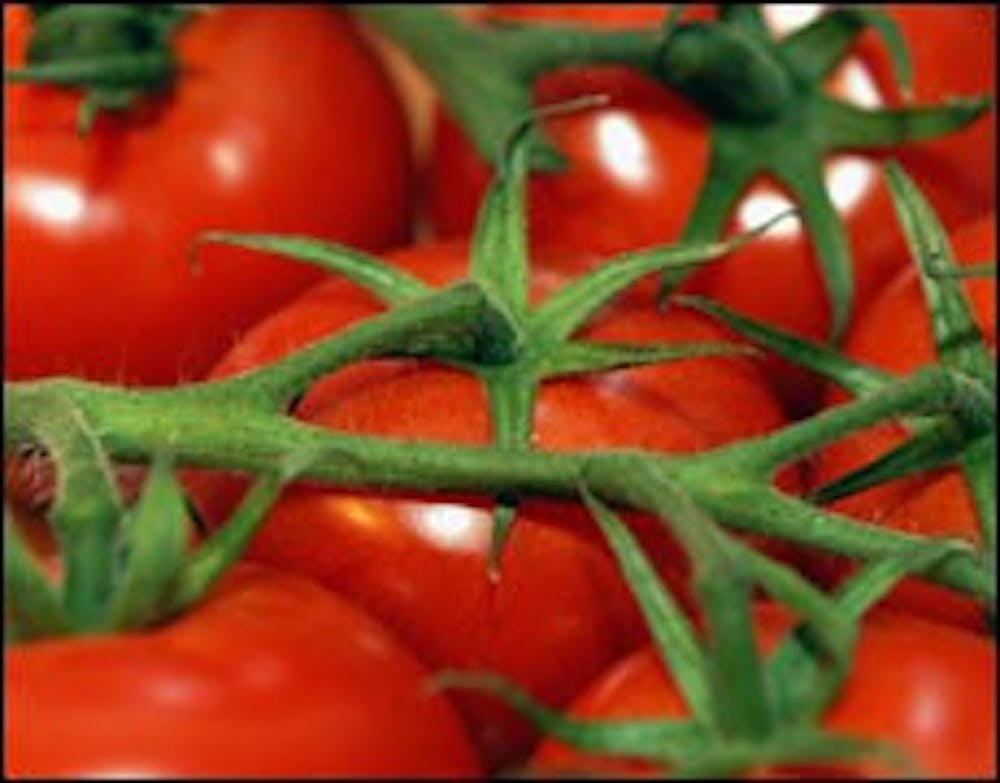Restaurant owners on and around campus are facing short-term profit losses due to the rising cost of tomatoes and other crops because of recent storms on the West and East coasts.
Hurricanes in Florida and the onset of heavy rain in California in mid-October have been a double threat to tomatoes, citrus and other crops typically grown in those regions, said Jim Nowlin, assistant director of Arizona Department of Agriculture.
Arizona grows its own citrus, but not very many tomatoes, Nowlin said.
Tomatoes are especially suited to grow in a humid, Mediterranean climate that can be found in California and Florida, Nowlin said.
"They grow an awful lot of tomatoes north of San Diego," Nowlin said. "The climate is essential. They're very susceptible to cold weather."
When the weather is too cold to grow tomatoes in the United States, they are shipped in from Mexico, Nowlin said.
But storms in Mexico have delayed the tomato-growing season there by a few weeks.
Prices should return to normal in the next few weeks, Nowlin said. Until then, business owners will continue seeing temporarily decreased profit margins.
The California Tomato Commission, which represents tomato growers in the state, released a statement on Oct. 28 stating that supplies of tomatoes are currently at "25 percent of normal," but that most growers are charging less than $1 per pound.
Charlie Mitchell, owner of the four Charlie's Cafes locations at ASU, said he has been paying between $1.50 and $2 per pound of tomatoes since the end of October, when he used to pay between 50 cents and $1 per pound.
Mitchell said he loses about 10 cents per sandwich he sells, but will not likely increase prices.
Since one tomato will garnish six sandwiches, Mitchell said the extra costs to his company are not high enough to require him to limit the use of tomatoes or increase the cost of sandwiches.
"You have to roll with the punches," Mitchell said. "I'm not going to raise prices midstream, because it's only short-term."
Sodexho USA, the company that provides food services at ASU, also is losing profits due to the increased tomato prices, said company spokeswoman Bonnie Gordon.
Gordon said the price of tomatoes has tripled for Sodexho, but prices at on-campus eateries will not increase.
"We know in the next year things should be bounced back and fine," Gordon said.
Phoenix-based Taylor Rae's Catering owner Randy Marquez said he faces "having to eat the bullet" because of rising tomato prices.
Marquez's business provides food for some ASU events, as well as large athletic events like the Phoenix Open.
Marquez said his company provides hamburgers for parties, and typically uses tomatoes as garnish. The cost of tomatoes decreases his profit margins, Marquez said. But raising prices isn't an option.
"Customers go with the guy who's cheapest," Marquez said. "In order to stay over, you've just got to eat it."
Reach the reporter at nicole.saidi@asu.edu.




